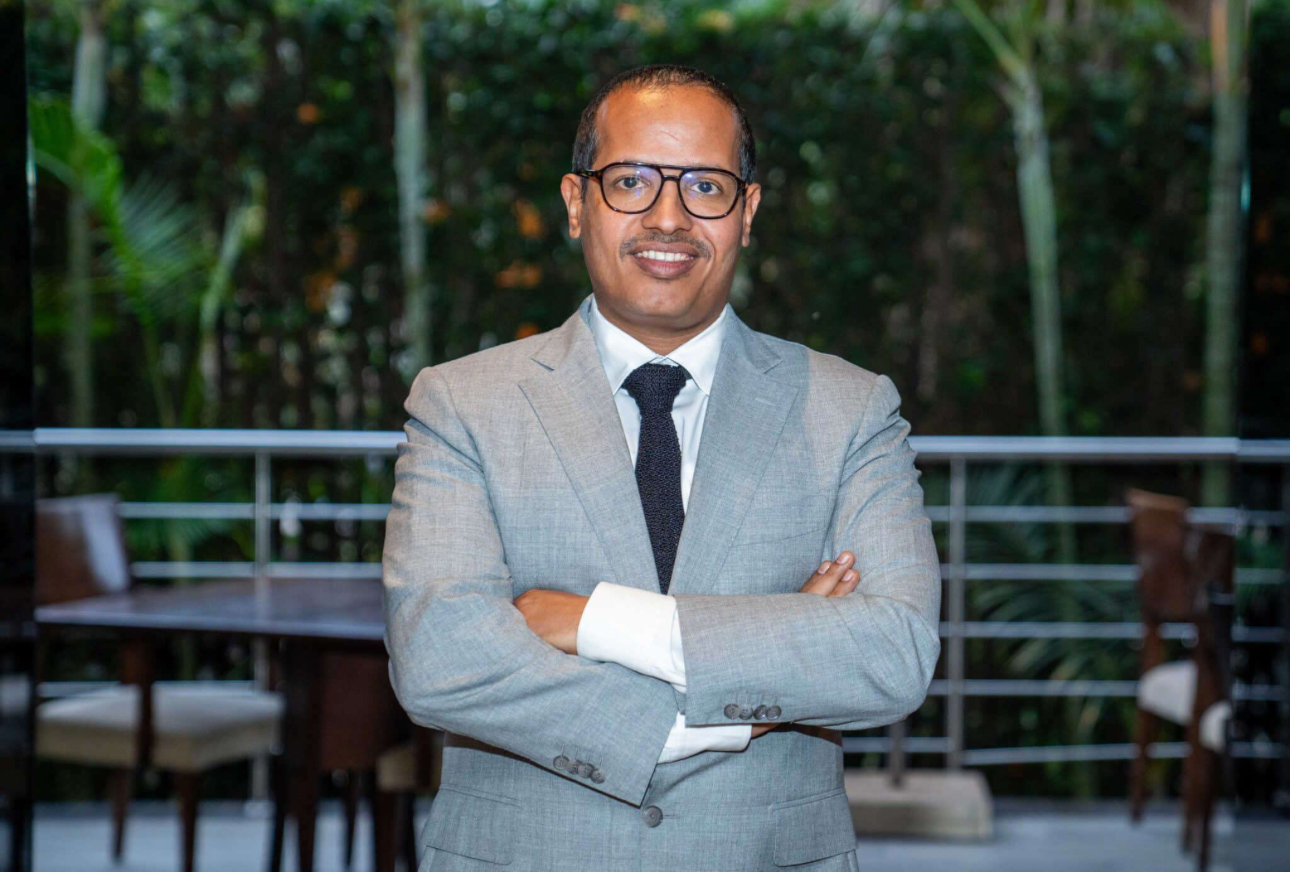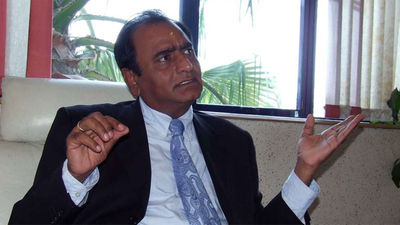Business
Tanzanian Tycoon Exposed in Insider Dealing Scandal Over Portland Cement Acquisition
Through his investment vehicle Kalahari Cement, Munif is purchasing 26.32 million EAPC shares from Swiss multinational Holcim at Sh27.30 each – a staggering 74.5% discount to the market price of Sh47.65 per share.

Edhah Abdallah Munif’s strategic moves raise serious questions about market manipulation and anti-competitive practices in Kenya’s cement industry
Tanzanian business magnate Edhah Abdallah Munif finds himself at the center of a brewing scandal as competition authorities scrutinize his calculated acquisition strategy that has positioned him to control nearly one-third of Kenya’s cement market through potentially illegal information sharing arrangements.
The controversy centers on Munif’s audacious bid to acquire an additional 29.2% stake in East Africa Portland Cement Company (EAPC) for Sh718.7 million, a deal that comes suspiciously close on the heels of his December 2024 acquisition of Bamburi Cement for Sh23.6 billion.
The Web of Control
What makes this acquisition particularly troubling is the intricate web of cross-ownership it creates. Through his investment vehicle Kalahari Cement, Munif is purchasing 26.32 million EAPC shares from Swiss multinational Holcim at Sh27.30 each – a staggering 74.5% discount to the market price of Sh47.65 per share.
This discount alone raises red flags about potential insider dealings. Why would Holcim sell at such a significant loss unless there were underlying arrangements that benefited both parties at the expense of market transparency?
The deal will make Munif the single-largest shareholder in EAPC with a 41.75% stake, while his Amsons Group already owns Bamburi Cement outright, which itself holds 12.5% of EAPC. This cross-ownership structure creates an alarming concentration of market power.
Market Manipulation Concerns
Industry analysts are questioning whether Munif’s strategy constitutes a systematic attempt to manipulate Kenya’s cement market. His companies will control the equivalent of 31% of the country’s cement production capacity of 14.5 million tonnes per annum, giving him unprecedented influence over pricing and supply chains.
The Competition Authority of Kenya (CAK) has confirmed it will investigate the deal for potential violations of Section 21 of the Competition Act, which prohibits restrictive trade practices including price fixing, collusive tendering, and market division.
“Cross-directorship may facilitate outlawed conduct such as the exchange of commercially sensitive information or market coordination,” warned CAK Director-General David Kemei, signaling the authority’s serious concerns about the arrangement.
The Discount Scandal
Perhaps most damning is the massive discount at which Munif is acquiring his EAPC stake. At yesterday’s closing price, EAPC shares traded at Sh47.65, yet Holcim is selling to Kalahari Cement at just Sh27.30 – a discount that suggests either gross undervaluation or preferential treatment.
Even more shocking, both the market capitalization of Sh4.29 billion and Kalahari’s purchase valuation of Sh2.46 billion fall far below EAPC’s book value of Sh20.4 billion, raising serious questions about asset stripping or manipulation of company valuations.
Regional Empire Building
Munif’s cement empire extends beyond Kenya’s borders, creating potential for regional market manipulation. Through Pan African Cement, he controls Tanzania’s Mbeya Cement Company, while his diversified portfolio includes the Camel Oil fuel brand operating across Tanzania, Kenya, and Mozambique, plus freight operations through East Africa Warehousing and Kalahari Trans Zambia.
This regional network provides multiple channels for potentially coordinating market activities across East Africa’s cement and related industries.
The CAK has warned it may impose “structural or behavioural remedies” including limitations on directorships and restrictions on information sharing between Munif’s companies. However, critics argue that such measures may be insufficient to prevent the kind of market coordination that this ownership structure enables.
The authority’s admission that it learned of the deal through media reports rather than formal notification also raises questions about regulatory oversight and whether Munif’s team deliberately avoided proper disclosure procedures.
The cement industry has already shown signs of stress, with production declining from 9.62 million tonnes in 2023 to 8.85 million tonnes in 2024. Munif’s consolidation strategy comes at a time when the market can ill afford further concentration that could limit competition and inflate prices for consumers.
His control over both Bamburi (22% market capacity) and significant influence in EAPC (8.96% capacity) positions him to potentially coordinate pricing and production decisions that could harm consumers and smaller competitors alike.
The Billionaires’ Battle
Industry observers describe the situation as setting up a “billionaires’ fight” for control of Kenya’s cement market, with Munif facing off against established players like the Rai family (Rai Cement) and Narendra Raval (National Cement, Athi River Mining, and Cemtech).
However, Munif’s cross-ownership strategy gives him advantages that his competitors lack, potentially allowing him to access and coordinate sensitive business information across multiple major players.
As the CAK prepares its formal investigation, the business community will be watching closely to see whether Kenya’s competition laws have sufficient teeth to prevent what appears to be a systematic attempt to consolidate market power through questionable acquisition practices.
The scandal has broader implications for Kenya’s business environment and foreign investment climate. If wealthy foreign investors can circumvent competition laws through complex ownership structures and preferential deal-making, it undermines the principles of fair market competition that Kenya has worked to establish.
The outcome of this case could set important precedents for how Kenya handles cross-ownership issues and whether its regulatory framework can effectively protect consumers and smaller businesses from anti-competitive practices by well-resourced international investors.
Kenya Insights allows guest blogging, if you want to be published on Kenya’s most authoritative and accurate blog, have an expose, news TIPS, story angles, human interest stories, drop us an email on [email protected] or via Telegram
-

 Grapevine1 week ago
Grapevine1 week agoAlleged Male Lover Claims His Life Is in Danger, Leaks Screenshots and Private Videos Linking SportPesa CEO Ronald Karauri
-

 Lifestyle2 weeks ago
Lifestyle2 weeks agoThe General’s Fall: From Barracks To Bankruptcy As Illness Ravages Karangi’s Memory And Empire
-

 Grapevine4 days ago
Grapevine4 days agoRussian Man’s Secret Sex Recordings Ignite Fury as Questions Mount Over Consent and Easy Pick-Ups in Nairobi
-

 Investigations2 weeks ago
Investigations2 weeks agoEpstein Files: Sultan bin Sulayem Bragged on His Closeness to President Uhuru Then His Firm DP World Controversially Won Port Construction in Kenya, Tanzania
-

 Business2 weeks ago
Business2 weeks agoKRA Can Now Tax Unexplained Bank Deposits
-

 Investigations1 week ago
Investigations1 week agoEpstein’s Girlfriend Ghislaine Maxwell Frequently Visited Kenya As Files Reveal Local Secret Links With The Underage Sex Trafficking Ring
-

 News1 week ago
News1 week agoState Agency Exposes Five Top Names Linked To Poor Building Approvals In Nairobi, Recommends Dismissal After City Hall Probe
-

 Investigations20 hours ago
Investigations20 hours agoMulti-Million Dollar Fraud: Three Kenyans Face US Extradition in Massive Cybercrime Conspiracy




























